Commercial fire systems such as fire sprinklers, backflow preventers, fire suppression systems, fire extinguishers, and fire alarms exist to keep your employees and customers safe from harm and keep your business operational. That is why fire protection inspections are so important. Preventive maintenance inspections by an experienced fire inspection company ensure your fire systems and equipment remain in complete working order so that it functions to stop the spread of fire. Types of fire system inspections include:
Why Perform Preventive Maintenance Inspections?
Caring for the lives of your buildings’ occupants is your number one priority. Since you can’t predict when a fire might occur and threaten those lives, regular fire system inspections are your best defense against a faulty system that may not extinguish fire when needed. Inspections also show what fire system maintenance is needed.
There are also hefty fines for not following the National Fire Protection Association (NFPA 72) inspection standards and your local Authorities Having Jurisdiction (AHJ) regulations, as well as the International Code Council (ICC) codes and those of your insurance company. Make fire prevention a priority with regular, preventive maintenance inspections.
Fire system inspections ensure fire prevention and also help your company:
Create a safe working environment at every location, without the fear of danger.
Prevent large nuisance fees for false alarms and fines for noncompliance.
Stay operational and avoid long-term losses.
Save costs associated with unmaintained, corroded, or damaged equipment.
Instill confidence and minimize stress during unannounced fire marshal inspections.
Maintain trust among employees, visitors, and customers alike.

What Are Preventative Maintenence Inspections?
The kind of commercial facilities you manage, the states in which you operate, and the different types of fire protection systems required at each facility will dictate your preventative maintenance and fire inspection type(s) and frequency.
Basically, preventative maintenance comprises the physical inspection of each piece of fire protection equipment in your company’s buildings to ensure it is not corroded, broken, or missing any parts, and that it works as it should. If anything is not up to code or isn’t working exactly right, that’s when maintenance and repair take place.
These standardized preventative maintenance inspections are required by the NFPA and ICC. Your local AHJ rules will vary depending on the state, city, municipality, and building use. If you have multi-site locations, be sure to check with your local fire marshal for those codes, as each system and location have different fire inspection requirements.
Preventive Maintenance Inspections are Required for:
Fire Sprinklers Inspections
This is one of the most important fire protection inspections. The adopted fire safety codes require all commercial entities and nonprofit organizations follow NFPA 25 Standard for the Inspection, Testing, and Maintenance of Water-Based Fire Protection Systems. Those standards include some fire sprinkler inspections performed by a trained employee and require others are performed by a licensed, professional technician or fire sprinkler inspector. All fire safety maintenance inpsections fall into one of these categories:
- Weekly, employee inspected: dry, pre-action, deluge systems gauges, control valves.
- Monthly, employee inspected: wet pipe system gauges, alarm valves.
- Annually, professionally inspected: building, hanger/seismic bracing, pipes/fittings, sprinkler heads, information signage, spare sprinkler heads, pre-action/deluge valves, dry pipe valves, backflow prevention assemblies.
- 5-year, professionally inspected: internal inspection of sprinkler piping, obstructions, check valves.
Backflow Preventer Inspections & Testing
Backflow preventer assembly units must be in working order for two reasons – to keep your facilities’ drinking water safe and to ensure sprinkler systems work. Therefore, by law, these assemblies must be inspected by a licensed sprinkler inspection company (not a backflow preventer inspector), at least annually.
According to the Certified Commercial Property Inspectors Association (CCPIA), the EPA holds each municipality accountable for its own water purity, therefore commercial backflow preventer testing requirements may differ slightly by region, however, typical backflow inspection requirements include the following:
When first installed by a licensed plumber, it should be tested.
Annual inspection/test of each cross-connection control and backflow preventer by a licensed fire sprinkler/backflow prevention inspector.
Inspect and test after any repair, replacement, or relocation.
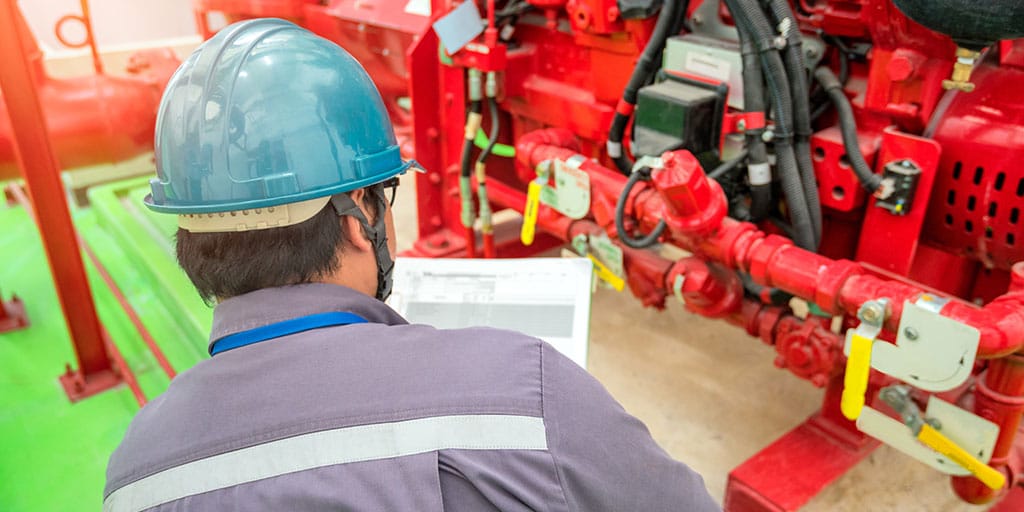
Non-Water-Based Fire Suppression Inspections
Fire suppression systems look and perform similarly to fire sprinklers, but instead use chemical, gaseous, or foam agents to suffocate the fire instead of using water. All of the different types of non-water-based fire suppression systems must be inspected twice a year by a licensed fire protection technician who ensures the proper amount of clean agent is available, the container is properly pressurized, and there is no visible damage to the container.
Because each type of fire suppression system uses different agents, each is governed by different codes and standards, such as NFPA 12, NFPA 11, NFPA 16, NFPA 1901, NFPA 2001, NFPA 72, NFPA 96, and local AHJ regulations.
Kitchen Hood Fire Suppression System Inspections
This fire protection inspection can save the lives of kitchen staff and customers. NFPA 96 says you must have your kitchen hood fire suppression system inspected every six months by a licensed fire protection company. These bi-annual inspections by a certified fire safety professional will ensure that if there is a fire, your fire suppression system will activate, put the fire out, and shut off the gas line or electric running to the equipment.
AIE also recommends the restaurant owner or kitchen manager perform a basic visual inspection of the hood suppression system monthly. This can help you identify necessary fire safety maintenance before it becomes an issue. Check for grease and clogs, grease-filled filters, damage to the nozzle caps and extinguishing lines, and anything that looks suspicious.
Fire Alarm Inspections & Monitoring
Every building and/or location of your business, whether it is a retail chain, big-box store, grocery store, distribution center, restaurant, or movie theater should have code-compliant fire alarm monitoring and regular visible inspections of those fire alarms according to the AHJ and NFPA 72, as follows:
- Weekly, performed by trained employee: fire alarm components, control panels, power supplies, fuses, LEDs, trouble signals.
- Monthly, performed by trained employee: batteries visually inspected for corrosion.
- Sem-annual, performed by licensed technician: initiating devices such as heat, smoke, dust detectors.
- Annual, performed by licensed technician: all fire alarm components/equipment.
Fire Extinguisher Inspections
OSHA and NFPA require monthly fire extinguisher inspections to check that the pressure gauge is on full (needle to green), the hose intact, and the pin is securely in place. Monthly inspections can be performed by an officially trained employee who initials and dates the backside of the tag. Annual fire extinguisher inspections must be performed by a certified professional and reported to the appropriate organizations.
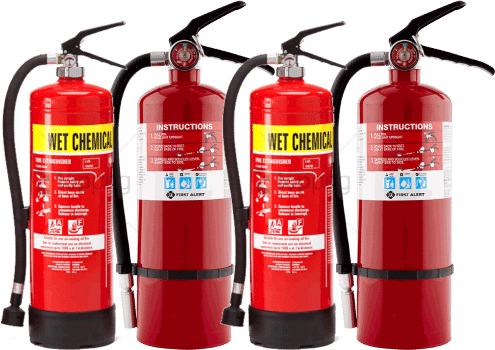
Meet All Fire System Inspection Requirements: Fire Inspection Company
The easiest, safest way to meet all national and regional fire protection and fire systems inspections laws and requirements in your retail chain stores, grocery stores, and other multi-site facilities is to partner with AIE – our team is your team!
Since 1983, AIE has been taking a preemptive, full-service, partner-approach to preventative maintenance inspections, significantly streamlining the inspection process for our clients. We also act as a third-party consultant, helping to manage inspection preparation and representing your company during scheduled inspections.
Preventive Commercial Fire System Inspections Protect Lives
Performing regularly scheduled, preventative fire equipment maintenance inspections at your commercial facilities offer many benefits, including protecting the lives of all building occupants and those nearby. Regular inspections also show the necessary fire system maintenance.
To learn more about how you can simplify preventive inspections and meet the fire safety standards at all locations with one source, contact AIE for a no-obligation conversation today. We’re an experienced fire inspection company that can guide you through the process to save you time and money. We look forward to meeting you! 800-892-9863
Information posted in our blog is merely for educational and informational purposes. While the information has been verified to the best of our abilities, we cannot guarantee its total accuracy, and it should not be considered legally binding advice. This blog is not intended as a substitute for professional advice, and should you decide to act upon the information, you do so at your own risk.
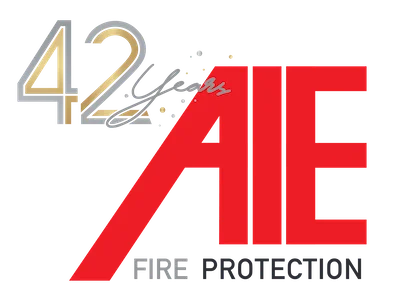
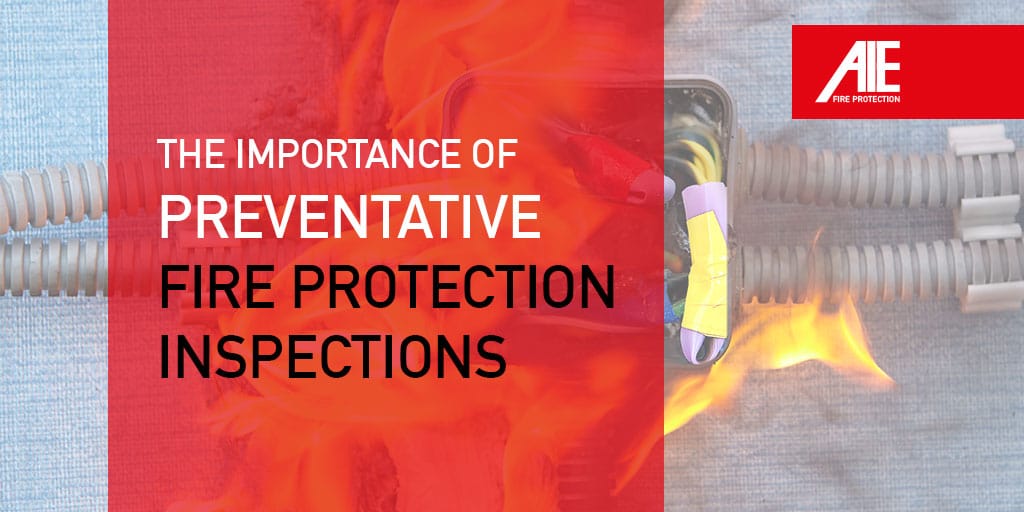
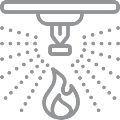

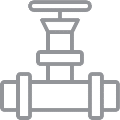


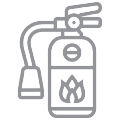
Recent Comments